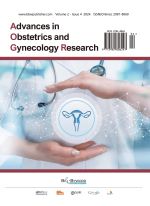Abstract
Objective: The purpose of this study was to identify the relationship between cancer coping, family support and degree of post-traumatic growth in female genital cancer patients receiving chemotherapy and provide evidence for nursing intervention to enhance post-traumatic growth. Methods: A cross-sectional study was conducted with 114 participants. The cancer coping, family support and post-traumatic growth were measured using a self-reported questionnaire. The collected data were analyzed with independent t-test, one-way ANOVA and Pearson correlation using the SPSS/win 28.0 statistical programs. Results: The mean score of cancer coping was 62.65 ± 13.53, that of intrapersonal coping 38.32 ± 8.34, and that of interpersonal coping was 24.32 ± 6.56. The mean score of family support was 49.06 ± 7.32 and post-traumatic growth was 59.66 ± 17.92. Post-traumatic growth showed a statistically significant positive correlation among intrapersonal coping (r = 0.80), interpersonal coping (r = 0.61), and family support (r = 0.42, p < 0.001). Conclusion: To increase post-traumatic growth, it is necessary to develop coping interventions so that cancer patients can effectively and positively cope with various difficulties and problems in the process of chemotherapy.
References
Mishra K, 2011, Gynaecological Malignancies from Palliative Care Perspective. I Indian Journal of Palliative Care, 17: S45–51.
National Cancer Information Center (KR), 2020, Annual Report of Cancer Statistics in Korea in 2020, viewed February 24, 2023, https://www.cancer.go.kr/
Hsu HC, Tsai SY, Wu SL, et al., 2017, Longitudinal Perceptions of the Side Effects of Chemotherapy in Patients with Gynecological Cancer. Support Care Cancer, 25: 3457–64.
Casellas-Grau A, Ochoa C, Ruini C, 2017, Psychological and Clinical Correlates of Post-Traumatic Growth in Cancer: A Systematic and Critical Review. Psychooncology, 26: 2007–2018.
Zhou LH, Hong JF, Qin RM, et al., 2021, Post-Traumatic Growth and Its Influencing Factors Among Chinese Women Diagnosed with Gynecological Cancer: A Cross-Sectional Study. European Journal of Oncology Nursing, 51: 101903.
Tedeschi RG, Calhoun LG, 2004, Post-Traumatic Growth: Conceptual Foundations and Empirical Evidence. Psychological Inquiry, 15: 1–18.
Aquil A, El Kherchi O, El Azmaoui N, et al., 2021, Body Image Dissatisfaction and Lower Self-Esteem as Major Predictors of Poor Sleep Quality in Gynecological Cancer Patients After Surgery: Cross-Sectional Study. BMC Womens Health, 21: 229.
Liu C, Zhang Y, Jiang H, et al., 2017, Association Between Social Support and Post-Traumatic Stress Disorder Symptoms Among Chinese Patients with Ovarian Cancer: A Multiple Mediation Model. PLoS One, 12: e0177055.
Moorey S, Frampton M, Greer S, 2003, The Cancer Coping Questionnaire: A Self-Rating Scale for Measuring the Impact of Adjuvant Psychological Therapy on Coping Behaviour. Psychooncology, 12: 331–344.
Fasano J, Shao T, Huang HH, et al., 2020, Optimism and Coping: Do They Influence Health Outcomes in Women with Breast Cancer? A Systematic Review and Meta-Analysis. Breast Cancer Research and Treatment, 183: 495–501.
Weiss MR, 2002, Post-Traumatic Growth in Women with Breast Cancer and Their Husbands: An Intersubjective Validation Study. Journal of Psychosocial Oncology, 20: 65–80.
Kim YJ, Kang SJ, 2016, Impact of Cognitive Function and Cancer Coping on Quality of Life Among Women with Post-Chemotherapy Breast Cancer. Korean Journal of Women’s Health Nursing, 22: 182–190.
Kang HK, 2017, Convergence Factors to Post-Traumatic Growth in Female Urogenital Neoplasm Survivors. Journal of the Korea Convergence Society, 8: 115–124.
Shin EY, Jang KS, 2003, The Relationships Among Self Care Knowledge, Family Support and Self Care Behavior in Hemato-Oncologic Patients. Chonnam Journal of Nursing and Science, 8: 49–67.
Lee JR, Lee GW, Chin EY, et al., 2015, Relationship Among Resilience, Family Support and Health Promotion of Hospitalized Cancer Patients in an Advanced General Hospital. Journal of Korean Inst Orient Med Inform, 21: 35–45.
Choi BR, Choi YS, 2022, A Narrative Study on Post-Traumatic Growth and the Meaning of Family in Cancer Patients’ Disease-Fighting Process. Journal of Family Relations, 27: 241–266.
Yun SJ, Kim HY, 2019, Factors Influencing Post-Traumatic Growth of Gynecologic Oncology Patients Undergoing Chemotherapy. Korean J Women’s Health Nursing, 25: 409–422.
Kim JN, Kwon JH, Kim SY, et al., 2004, Validation of Korean-Cancer Coping Questionnaire (K-CCQ). Korean Journal of Health Psychology, 9: 395–414.
Cobb S, 1976, Presidential Address-1976. Social Support as a Moderator of Life Stress. Psychosomatic Medicine, 38: 300–314.
Kang HS, 1984, An Experimental Study of the Effects of Reinforcement Education for Rehabilitation on Hemiplegia Patients’ Self-Care Activities, thesis, Yonsei University, Seoul.
Tedeschi RG, Calhoun LG, 1996, The Post-Traumatic Growth Inventory: Measuring the Positive Legacy of Trauma. Journal of Trauma Stress, 9: 455–471.
Jung YM, Park JH, 2017, Development and Validation of the Cancer-Specific Post-Traumatic Growth Inventory. Journal of Korean Academy of Nursing, 47: 319–331.
Oh JM, Kim Y, Kwak Y, 2021, Factors Influencing Post-Traumatic Growth in Ovarian Cancer Survivors. Support Care Cancer, 29: 2037–2045.
Ha Y, Yang S, 2015, The Effects of Cancer-Related Characteristics and Cancer Coping on Post-Traumatic Growth of Cancer Survivors. Journal of Health Informatics and Statistics, 40: 1–12.
An HJ, 2019, The Correlation of Distress, Family Support and Resilience in Patients with Female Genital Cancer Undergoing Chemotherapy, thesis, Seoul National University, Seoul.
Lee ES, Park JS, 2013, The Comparison of Health Promotion Behavior, Post-Traumatic Growth and Quality of Life According to Stages of Survivorship in Patients with Female Genital Neoplasm. Korean Journal of Adult Nursing, 25: 312–321.
Danhauer SC, Case LD, Tedeschi R, et al., 2013, Predictors of Post-Traumatic Growth in Women with Breast Cancer. Psychooncology, 22: 2676–2683.
Jeon BR, Choi YK, 2016, The Effects of Perceived Threat, Optimism and Meaning in Life on Cancer Patient’s Post-Traumatic Growth. Stress, 24: 1–12.
Park MH, Park JS, 2016, A Meta-Analysis of Intervention Research for Post-Traumatic Growth in Cancer Patients. Asian Oncology Nursing, 16: 9–19.
